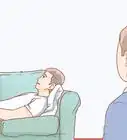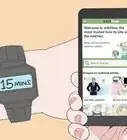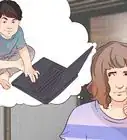This article was co-authored by Tasha Rube, LMSW. Tasha Rube is a Licensed Social Worker based in Kansas City, Kansas. Tasha is affiliated with the Dwight D. Eisenhower VA Medical Center in Leavenworth, Kansas. She received her Masters of Social Work (MSW) from the University of Missouri in 2014.
There are 15 references cited in this article, which can be found at the bottom of the page.
This article has been viewed 360,102 times.
Although it's not yet recognized as an official disorder in the Diagnostic and Statistical Manual of Mental Disorders (DSM), internet addiction is an increasingly prevalent problem that affects a lot of people. Psychological research is seeing a growing trend of addictive online behavior, with participants experiencing the same kinds of stimulus-based highs reflective of other addictions like gambling or compulsive shopping.[1] It can have serious effects on the mental and emotional health of addicts, leaving them lonely, anxious, and depressed. Addictions can also have unwanted repercussions in important parts of a person's life, such as work productivity and personal relationships. This article will help you start turning your life around, so you can step away from the internet and improve your relationships in the real world.
Steps
Treating the Underlying Psychological Problem
-
1Think about how your emotional health relates to internet usage. Studies have shown that people with internet addictions often suffer from loneliness, anxiety, and depression.[2] If you think you have an internet addiction, you won’t be able to get past it unless you make an honest effort to understand how the addictive behavior is tied to your emotional state. Symptoms of internet addiction may include:
- A preoccupation with the internet, even when you're not online.
- A sudden and drastic increase in your internet usage.
- Difficulty cutting back or stopping internet usage.
- Irritation, aggression, or restlessness caused by efforts to cut back on internet use.
- Unstable moods when not online, or internet use as a way to cope with stress.
- Internet use interfering with job duties or academic work.
- Difficulty maintaining healthy relationships when not online.
- Friends and family expressing concern for the amount of time you spend online.
-
2Keep an addiction journal. When you’re using the internet, take a moment to write down how you feel in the moment. When you’re not using it, but are craving the internet, write down how you feel in that moment. An addiction journal will give you some insight into how your addiction is affecting your emotional health.
- Do you feel smarter, wittier, and more confident online than you do in real life?
- Do you feel depressed, isolated, and anxious when you’re not on the internet?
Advertisement -
3See a therapist. If your internet addiction is interfering with your quality of life, you should seek professional help to get to a better place. Though internet addiction is not yet recognized as an official psychological diagnosis, there is a movement within the medical community to have it recognized as a treatable disorder.[3] Working with a trained professional will help you to release yourself from your dependence on the internet.
- The Center for Internet Addiction offers a wide variety of information, resources, and treatment options for internet addiction.[4]
-
4Seek help at a rehabilitation center. Although internet addiction obviously hasn't been around as long as alcohol or drug addiction, there are still some rehabilitation centers where trained professionals can help guide you toward a healthier lifestyle.[5]
- The Bradford Regional Medical Center is the first program to offer in-patient treatment for internet addiction in the United States.
- ReStart offers a wide variety of treatment options, from in-home assessments to in-patient treatment for internet addiction, as well as services for family members who may be affected by addiction.[6]
-
5Call a hotline. If you aren't sure how serious your problem is, if you have any questions about what internet addiction is, or if you need help finding treatment for your addiction in your area, there are several hotlines to help you find the information you need.
-
6Find a support group. Therapists and rehab centers can be incredibly expensive, and you might not be able to afford one. However, depending on what town you live in, you may be able to find a support group you can join for free. See if your town has a meeting of Internet and Technology Addicts Anonymous (ITAA).[9]
- For many people, other mental health issues such as depression, anxiety, or stress can lead to or exacerbate internet addiction. Looking at support groups for these problems, or seeking therapy to treat any underlying issues, can also help treat internet dependence.
Streamlining Your Internet Usage
-
1Use a news aggregator. News aggregators like Feedly and Digg Reader allow you to look at all of your favorite websites in one place, instead of clicking around through various windows. When you have multiple windows open, your attention gets scattered, and you get pulled into the immersive experience you’re having with your screen. Keep your screen simple and clean as a way to keep yourself focused and aware of what you’re doing and how you’re spending your time.
- Add only those websites to your aggregator that you absolutely need to keep tabs on. Don’t fill your mind with unnecessary information.
- Only have one program open unless you actually need to use multiple programs.
- Only have one tab open on your web browser at a time.
-
2Delete useless accounts. You may have accounts with websites that you never use, but which email you endlessly trying to remind you to use their service. You don’t need that temptation, so just delete all the accounts you don’t use and unsubscribe from their email listservs. You should also take a look at the accounts that you use too much. Are you spending valuable work time on Facebook or Instagram? Even if you love them and use them often, it may be in your best interest to delete those accounts, or at least deactivate them for a time until you get your internet usage under control.
- You may need some of these sites for work — for example, Myspace if you’re a musician — so don’t delete an account that you actually need. You might get a co-worker or friend to maintain that account until you can handle the responsibility.
-
3Turn off notifications.[10] If your smartphone notifies you immediately every time someone emails you or likes something you've posted on social media, you’ll be forever fiddling around on the internet with your phone. Change the app settings on your phone to prevent immediate notifications. Set a schedule in which you allow yourself to manually check email and social media once every two hours or so.
Rationing Your Internet Usage
-
1Make a plan. Quitting any addiction cold-turkey has a low rate of success. Relapse rates are high for addicts with chemical addictions like nicotine or alcohol, as well as those with behavioral or procedural addictions like gambling, shopping, or internet addictions.[11] Instead of trying to quit cold turkey, make a plan to scale back your internet usage in a manageable way, so you don’t feel overwhelmed by the sudden loss of an important part of your life.
- Set manageable goals. If scaling back to one hour a day is your ultimate goal, maybe start with three hours a day.
- When you feel comfortable with one step down, reduce your daily allotment by half an hour. Keep scaling back your internet usage until you reach your goal.
-
2Set a timer. After you've made your plan, you need to stick to it, and you can’t do that unless you’re keeping careful track of how much time you’re spending on the internet. If you’re allowing yourself three hours a day at first, you might break that up into three sessions that are one hour each. If that’s the case, make sure to set a timer to let yourself know when your hour is up each time you sit down at your computer.
- Egg timers can be purchased very inexpensively at any grocery store in the kitchen tools sections.
- Most phones have a timer app on them.
-
3Buy or download an internet-blocking app. You addiction may be so heavy that you don’t trust yourself to stick to the schedule you've set for yourself. If that’s the case, there are programs you can install that will limit your internet time for you. The program called Freedom will block you from the entire internet for up to eight hours at a time, whereas Anti-Social will block only social media sites like Facebook.[12] [13]
- If you don’t trust yourself not to just turn those programs off, purchase one that requires a password to disable its settings, and have a friend set up the password. Choose a friend you trust not to give you the password!
Use Technology to Limit the Internet
-
1Limit your internet use in the browser using extensions. Chrome users can install BlockSite to restrict certain distracting websites, such as Facebook or Reddit. StayFocusd will let you specify the amount of time per day that you are allowed to spend on a list of distracting websites, then once that time is up, you can't access those sites until the next day. You can also choose the Nuclear Option to block those sites immediately, allow only specific sites, or block all websites for a specific period of time. Strict Workflow will let you block most or all of the internet for a customizable period, then give yourself a short break of internet access. LeechBlock is an extension for both Firefox and Chrome that blocks groups of sites at specific times of day.
-
2Change your network settings. Many home broadband routers have the option of blocking specific websites or blocking the internet at certain times of day. Look at the router to find the model number then search the internet for the user's manual to find out how.
-
3Use blocking software on your entire computer. Freedom is supported on PCs and Macs, Self Control works on Macs, and Cold Turkey works on PCs. The paid version of Cold Turkey Blocker will let you schedule block lists of internet sites or applications at certain times of day, or run Frozen Turkey to block you out of the the computer entirely. Cold Turkey Writer will disable all programs except a word processor, useful for students writing a paper or for aspiring authors.
-
4Install parental control software on your phone. iPhones running IOS 12 or later have the option under Screen Time of setting daily time limits on categories of apps such as Social Media or Games. To enforce the limits, you have to set a parental control password. Otherwise Screen Time just tracks how much time you spend without limiting it.
-
5Make your phone less enticing. Most Android phones and iPhones have the option of turning the colors off so that it is a grayscale device. On iPhones this is under Accessibility settings.
Living Life Off the Internet
-
1Throw yourself into your studies or work. You need to find a positive outlet for all the pent-up mental energy you’ll have once you stop using the internet so much. Throwing yourself into your studies or your work with renewed energy is a great way to keep your mind occupied while improving your results and your relationships at work! You’ll be amazed by how much your productivity will improve when you redirect your attention to tasks that matter more in the long run.
-
2Lean on your friends. Talk to them about the problems you've been having with your internet usage, and ask them to spend more time with you. Instead of chatting with them online, invite them over to your house for dinner, or go meet up with them for dinner and drinks. Your friends and family will serve as your support system, filling in those hours where you’d normally be mindlessly clicking through the internet. Not only will you be distracted from the computer, you’ll also be improving your relationships with the people most important to you.
-
3Develop new hobbies. There’s a whole world of activities you can enjoy outside of the internet! Make yourself a promise that you will use your computer only for work, and find recreation elsewhere.[14] Get out of the house, away from your temptations.
- Take up walking or jogging.
- Join a recreational sports league — soccer, basketball, football, whatever you enjoy the most!
- Join a book club.
- Start a band with some friends who share your taste in music.
- Take up knitting or crocheting.
- Start gardening
- Prepare home-cooked meals that taste delicious, save money, and eat up your spare hours, when you’d normally be surfing the internet!
- Join a chess club.
Expert Q&A
-
QuestionWhat if I feel like I need to battle or remain active in game as I have a responsibility to a guild or clan? We fought for a long while and have developed group relationship but being on the internet cost me in my real life relationships. Will it be like I'm betraying them?
 Tasha Rube, LMSWTasha Rube is a Licensed Social Worker based in Kansas City, Kansas. Tasha is affiliated with the Dwight D. Eisenhower VA Medical Center in Leavenworth, Kansas. She received her Masters of Social Work (MSW) from the University of Missouri in 2014.
Tasha Rube, LMSWTasha Rube is a Licensed Social Worker based in Kansas City, Kansas. Tasha is affiliated with the Dwight D. Eisenhower VA Medical Center in Leavenworth, Kansas. She received her Masters of Social Work (MSW) from the University of Missouri in 2014.
Licensed Master Social Worker This might be a time to reflect on how your overall level of functioning is outside of online gaming. Outside of your online gaming, are you still able to function normally at work and at home? Are you still able to maintain healthy relationships outside of your home and gaming life? If not, then you should consider seeking some sort of supportive group in your area to help you either decrease the amount of online gaming you do, or eliminate it altogether.
This might be a time to reflect on how your overall level of functioning is outside of online gaming. Outside of your online gaming, are you still able to function normally at work and at home? Are you still able to maintain healthy relationships outside of your home and gaming life? If not, then you should consider seeking some sort of supportive group in your area to help you either decrease the amount of online gaming you do, or eliminate it altogether. -
QuestionCan you send a questionnaire to me about internet addiction and its preventative measures?
 Tasha Rube, LMSWTasha Rube is a Licensed Social Worker based in Kansas City, Kansas. Tasha is affiliated with the Dwight D. Eisenhower VA Medical Center in Leavenworth, Kansas. She received her Masters of Social Work (MSW) from the University of Missouri in 2014.
Tasha Rube, LMSWTasha Rube is a Licensed Social Worker based in Kansas City, Kansas. Tasha is affiliated with the Dwight D. Eisenhower VA Medical Center in Leavenworth, Kansas. She received her Masters of Social Work (MSW) from the University of Missouri in 2014.
Licensed Master Social Worker I suggest that you connect with your local community agencies that deal with additions as they will be able to provide you with the right kind of resources. There is a wealth of information and questionnaires you should be able to access online as well.
I suggest that you connect with your local community agencies that deal with additions as they will be able to provide you with the right kind of resources. There is a wealth of information and questionnaires you should be able to access online as well.
References
- ↑ https://www.ncbi.nlm.nih.gov/pmc/articles/PMC3480687/
- ↑ http://www.telegraph.co.uk/health/healthnews/10557025/High-fliers-at-risk-of-isolation-and-depression-from-internet-addiction.html
- ↑ http://www.ncbi.nlm.nih.gov/pmc/articles/PMC2719452/
- ↑ http://netaddiction.com/counseling/
- ↑ http://www.cnn.com/2013/09/07/health/internet-addiction-treatment-center/
- ↑ http://www.netaddictionrecovery.com/our-mission.html
- ↑ http://www.projectknow.com/research/internet-addiction/
- ↑ http://www.netaddictionrecovery.com/contact-us/24-7-confidential-helpline.html
- ↑ http://www.internetaddictsanonymous.org/
- ↑ http://www.theguardian.com/commentisfree/2014/jan/09/5-ways-internet-use-web-addiction
- ↑ http://whyquit.com/pr/121305.html
- ↑ http://macfreedom.com/
- ↑ http://anti-social.cc/
- ↑ http://www.addictions.com/computer/how-to-stop-computer-addiction/
- King, Daniel L.Delfabbro, Paul H.Griffiths, Mark D.Gradisar, Michael. "Cognitive Behavioral Approaches To Outpatient Treatment Of Internet Addiction In Children And Adolescents." Journal Of Clinical Psychology 68.11 (2012): 1185-1195. Psychology and Behavioral Sciences Collection. Web. 17 Dec. 2014.
About This Article
If you think you’re addicted to the internet, there are many ways you can reduce your usage to a reasonable level. Slowly decrease your time on the internet over a few days or weeks. For example, use the internet for 4 hours the first day, 3 hours the next day, and so on until you reach a time you're happy with. That way, you’ll adjust better and have fewer cravings. To help yourself stick with your new schedule, use a program, app, or browser extension to block the internet or certain sites during your downtime. It’s easy to start craving the internet when you don’t have anything to replace it with, so give yourself fun activities that don't involve going online. You can start a new hobby, play sports with your friends, or look for a side gig to make more money. For more tips from our co-author, including how to find a support group or therapist to help your internet addiction, read on.
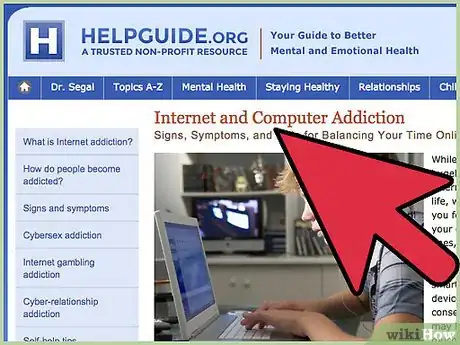
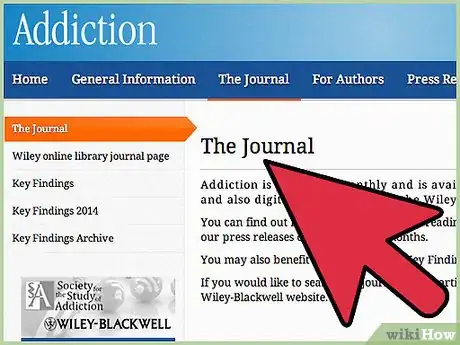
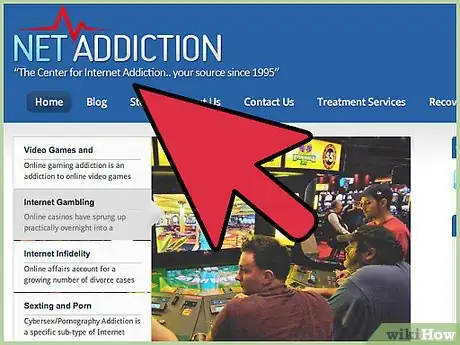
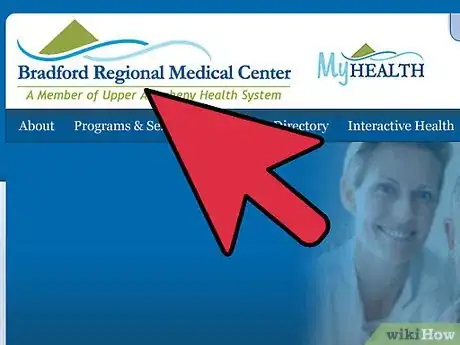
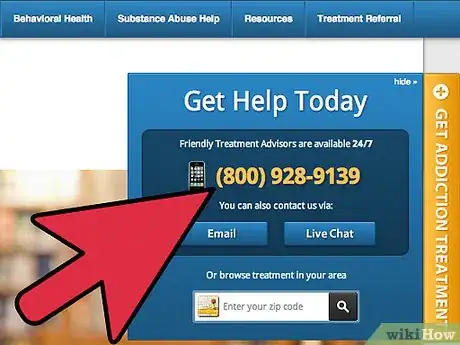
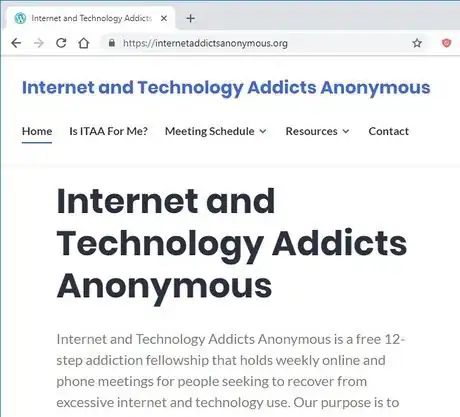

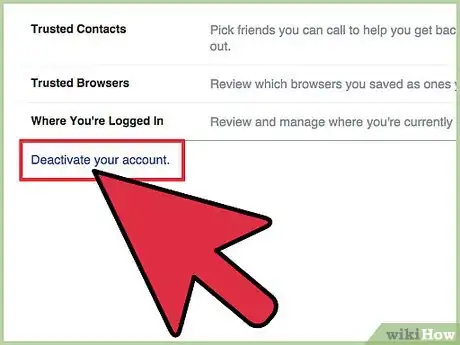
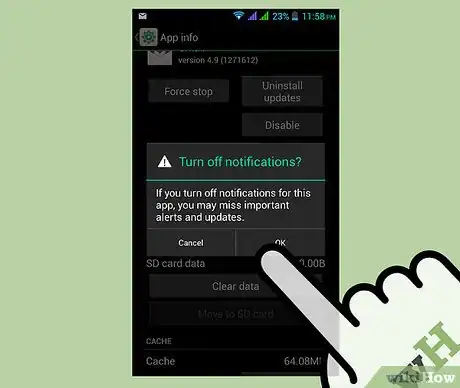
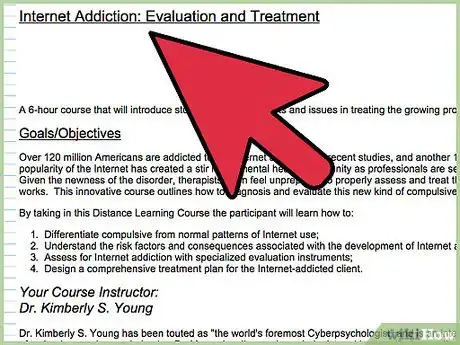
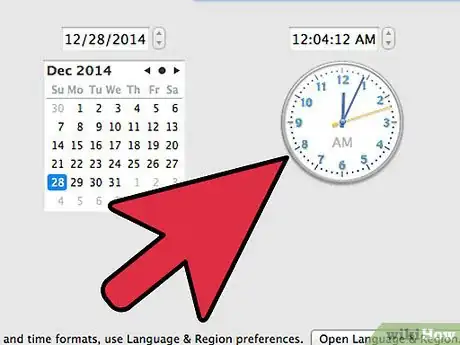
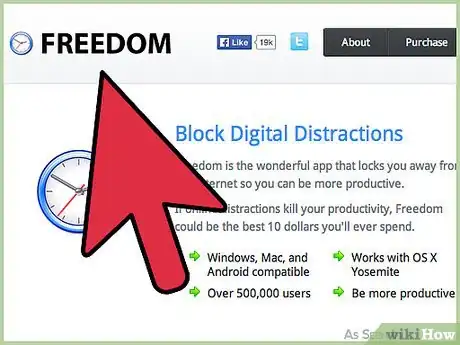
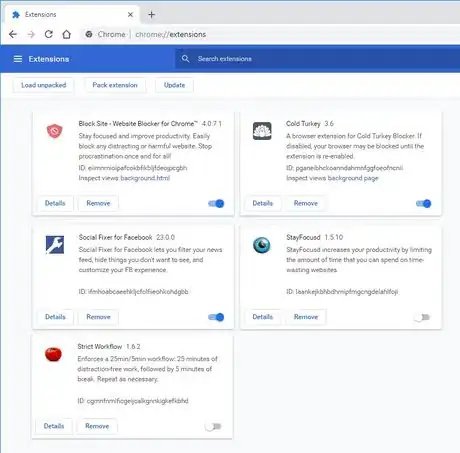
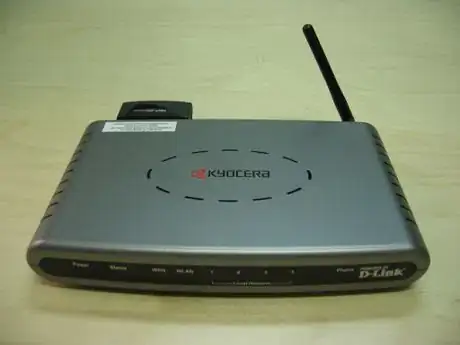
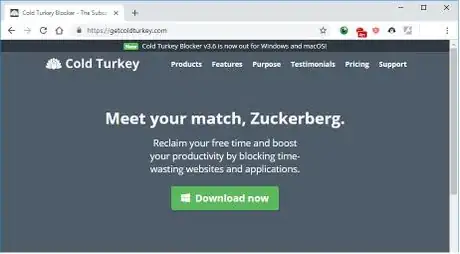
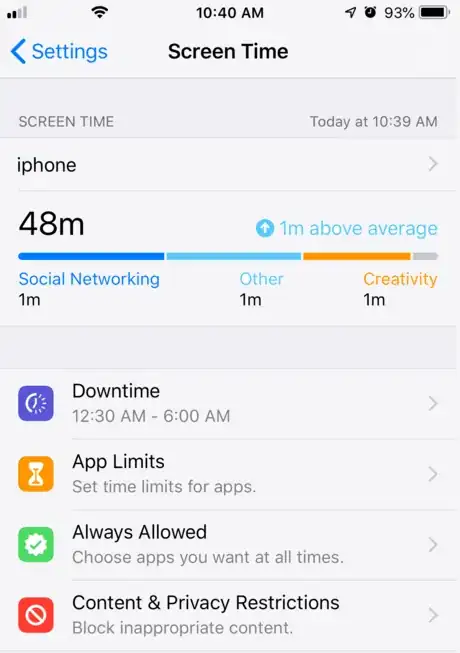
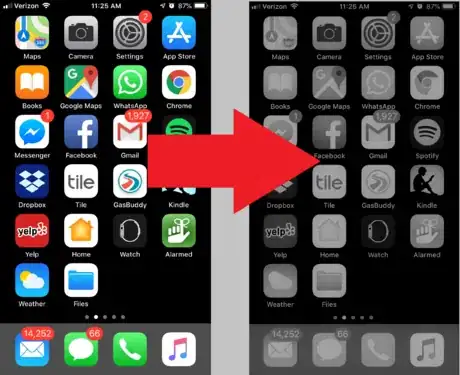
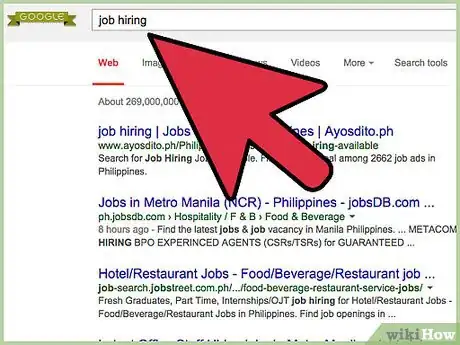
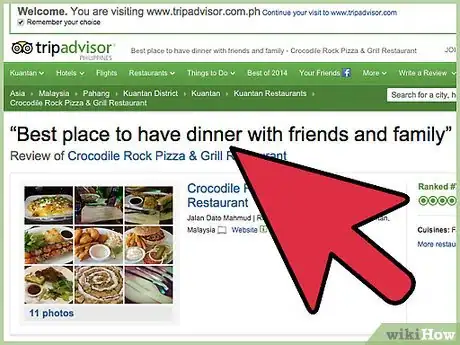
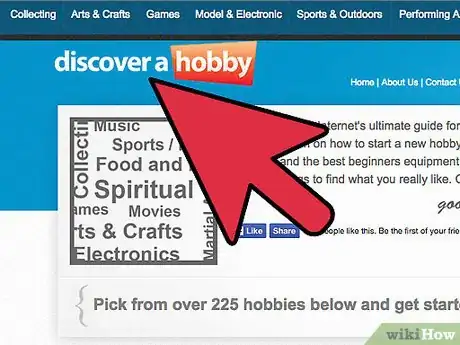

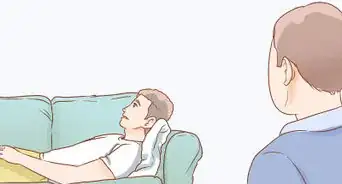
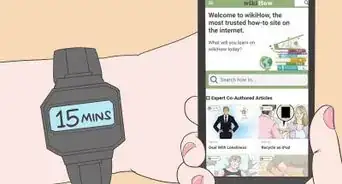
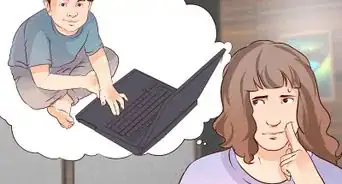
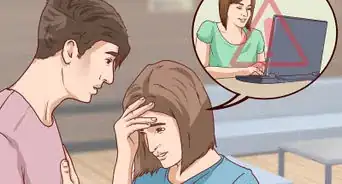
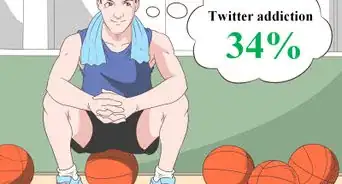

-Step-17.webp)

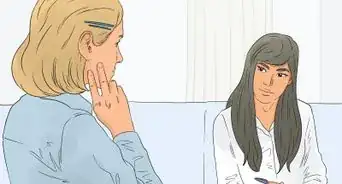
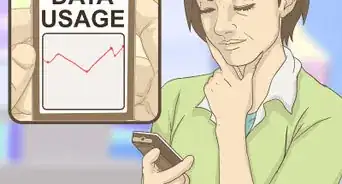
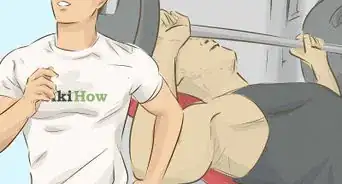
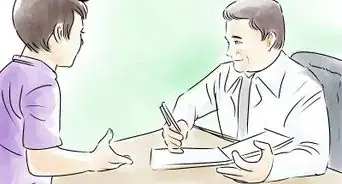
-Step-14.webp)










